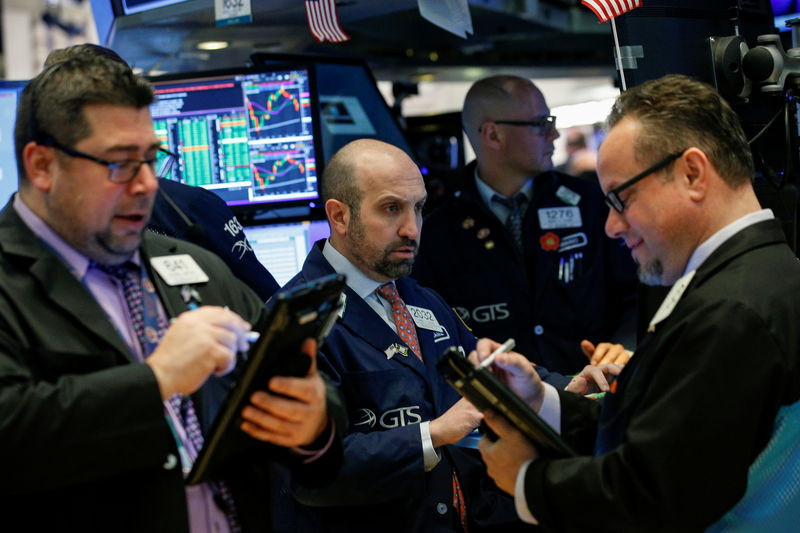By Marc Jones
LONDON (Reuters) - The turbulent start to 2018 in financial markets has finally brought an end to one of the longest ever global bull runs - and there have been few places to hide.
After last year's tranquillity, as the charts below show, investors have had it all thrown at them this quarter, from the biggest ever rise in stock volatility (VIX) to rapidly escalating tensions over global trade, deepening turmoil in the White House and major tech sector wobbles.
A "melt-up" that sent the MSCI's world share index up 8 percent in January suddenly evaporated. Now the Dow Jones (DJI), S&P 500 (SPX), FTSE (FTSE) Nikkei (N225) and scores of other big markets are all down for the year.
(GRAPHIC: Global markets in first quarter - https://reut.rs/2pKaneV)
As a set, the FAANGs (Facebook (NASDAQ:FB), Amazon (NASDAQ:AMZN), Apple (NASDAQ:AAPL), Netflix (NASDAQ:NFLX) and Google (NASDAQ:GOOGL)) are still up 14 percent, but privacy concerns after it was revealed that 50 million Facebook users' data was misused has wiped $400 billion off their value. Not exactly small change.
(GRAPHIC: The sinking FAANGs - https://reut.rs/2GhhYIe)
"January was a boom month, but there was clearly complacency coming into the market," said London & Capital's head of equities Roger Jones. "That has all changed now".
Cryptocurrency Bitcoin (BTC=BTSP) has lost 43 percent as well.
Still, it hasn't been a one-way "risk-off" doom-fest for markets by any means.
Galloping global growth mean commodities like oil (LCOc1) are up for a third quarter running, stocks in the world's poorest 'frontier' countries are up 4 percent, and Italian bonds have made almost 6 percent returns despite an inconclusive election.
After a stellar 2017, emerging market 'local' currency bonds have done well again too as the Chinese yuan
(GRAPHIC: Global FX in 2018 - https://reut.rs/2pPldj5)
So has Britain's Brexit-bound pound. It has had its best quarter since early 2015 and not only against a dollar
"The (political) momentum is to make Brexit work now," said one central banker privately.
What the choppy conditions have also reminded people of is the value of a good old-fashioned safe-haven.
Japan's yen
But some of the heavyweight central banks like the U.S. Federal Reserve, ECB, Peoples Bank of China, Bank of England and Bank of Canada are still looking to raise interest rates. Unlike Bunds, U.S. Treasuries (US10YT=RR) have lost 3 percent.
It is one of the reasons that stocks have been shaky of course, and it remains one of the main things shaping many investors' view on the rest of the year.
"One thing that it is going to be important to get right now is where to be when bond yields are going up," said SEB investment management's global head of asset allocation Hans Peterson.

"We are rotating from the old regime of low interest and growth stocks like the FAANGs into a new world... and that creates volatility."